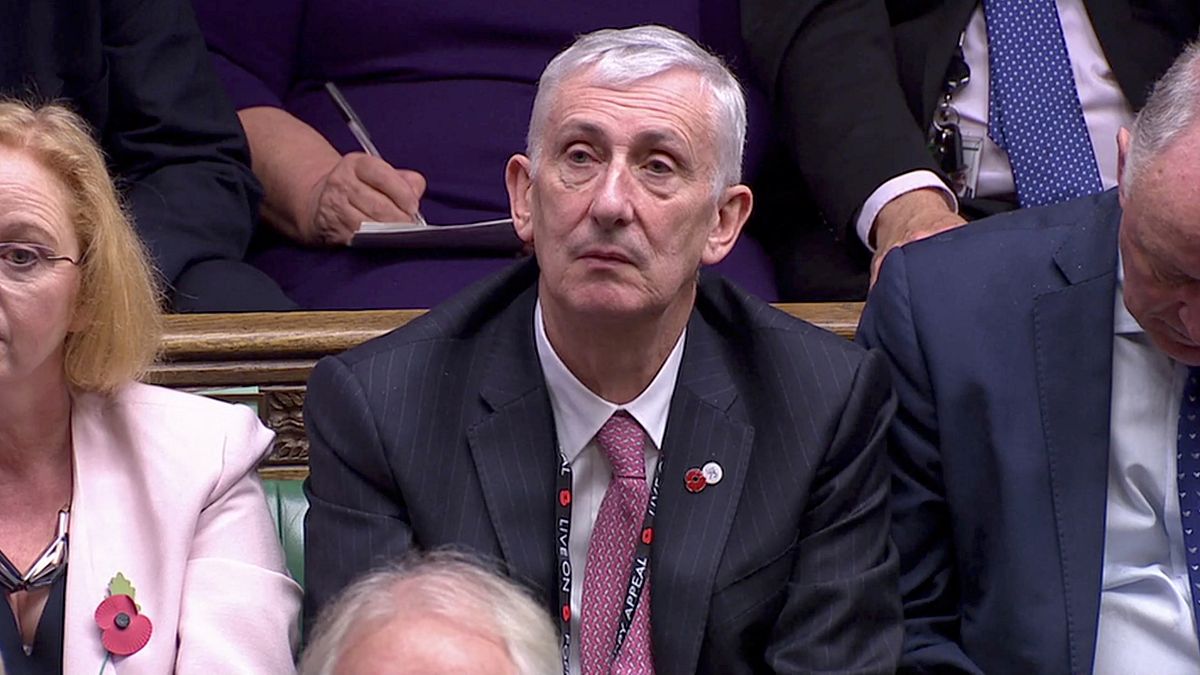Becoming Speaker was traditionally viewed as a reward for long service, but now involves refereeing the the country's protracted struggle over Brexit.
Deputy Speaker Sir Lindsay Hoyle has been elected to replace the controversial John Bercow as Speaker of the House of Commons.
The 62-year-old member of the opposition Labour Party has said the Speaker must be independent and fair and has promised to work to unite parliament.
Hoyle received 325 votes in the fourth round of voting.
The MP received the most votes out of the seven candidates in both the first, second and third round of voting but did not receive a 50% majority. The candidates with the fewest votes were dropped from the contest.
Becoming Speaker of the House of Commons was traditionally viewed as a reward for long-serving members of parliament, but now involves refereeing the country's protracted struggle over Brexit.
The Speaker is the arbiter of procedural disputes and has the power to decide which challenges to the government's plans are allowed to proceed.
In the three years since Britain voted to leave the European Union, the Speaker has played an increasingly prominent role in the process of debating the rights and wrongs of Brexit.
Bercow was accused of breaking convention and favouring those who wanted to thwart the government's Brexit plans. But he was feted by others who saw him as empowering them to challenge and scrutinise the executive.
"The Speaker who succeeds John Bercow, whoever they are, is going to face quite a unique set of challenges," said Alice Lilly, senior researcher at the Institute for Government think tank.
Foremost among those challenges will be Brexit, but the Speaker will also have to handle criticism that parliament's antiquated setup has allowed bullying and harassment.
Bercow's replacement was chosen by a series of secret ballots — a process that took several hours, with candidates dropping out after each round of voting until one has majority support.
Since 2017, the ruling Conservative Party has not had a majority in parliament, giving rivals more freedom to challenge the government and the Speaker a big say in the process.
But with a national election coming on December 12, the new Speaker's first job will depend on what government the public elect.
"Some of the decisions that John Bercow has made in the chair have been quite unprecedented. They've been very unexpected. Some MPs (Members of Parliament) have loved them. Some MPs have loathed them," said Lilly.
"We'll have to wait and see whether the new Speaker faces similar conditions with Brexit and minority government. If we have a majority government, it might be that actually Commons procedure becomes a little bit less crucial."


